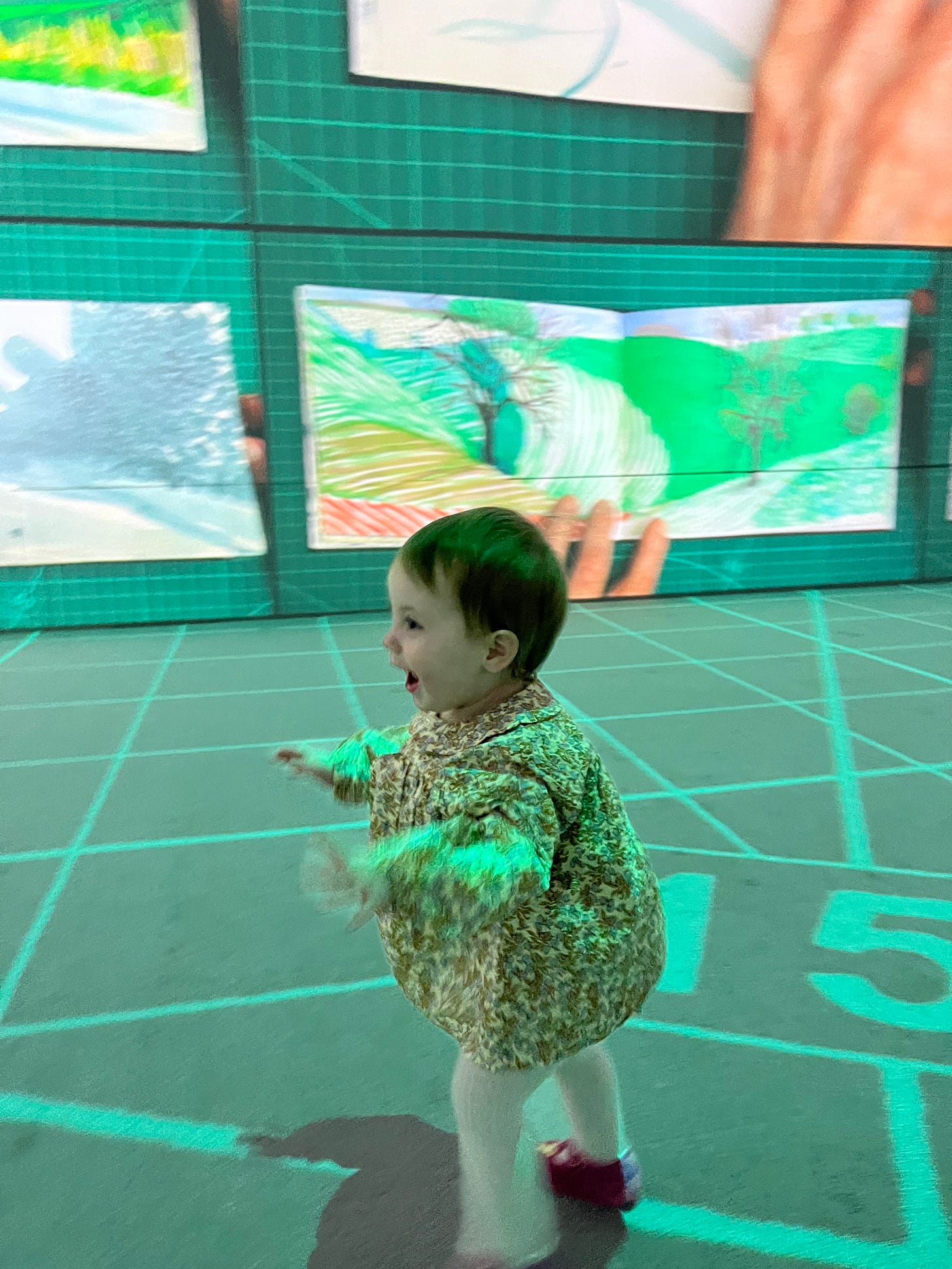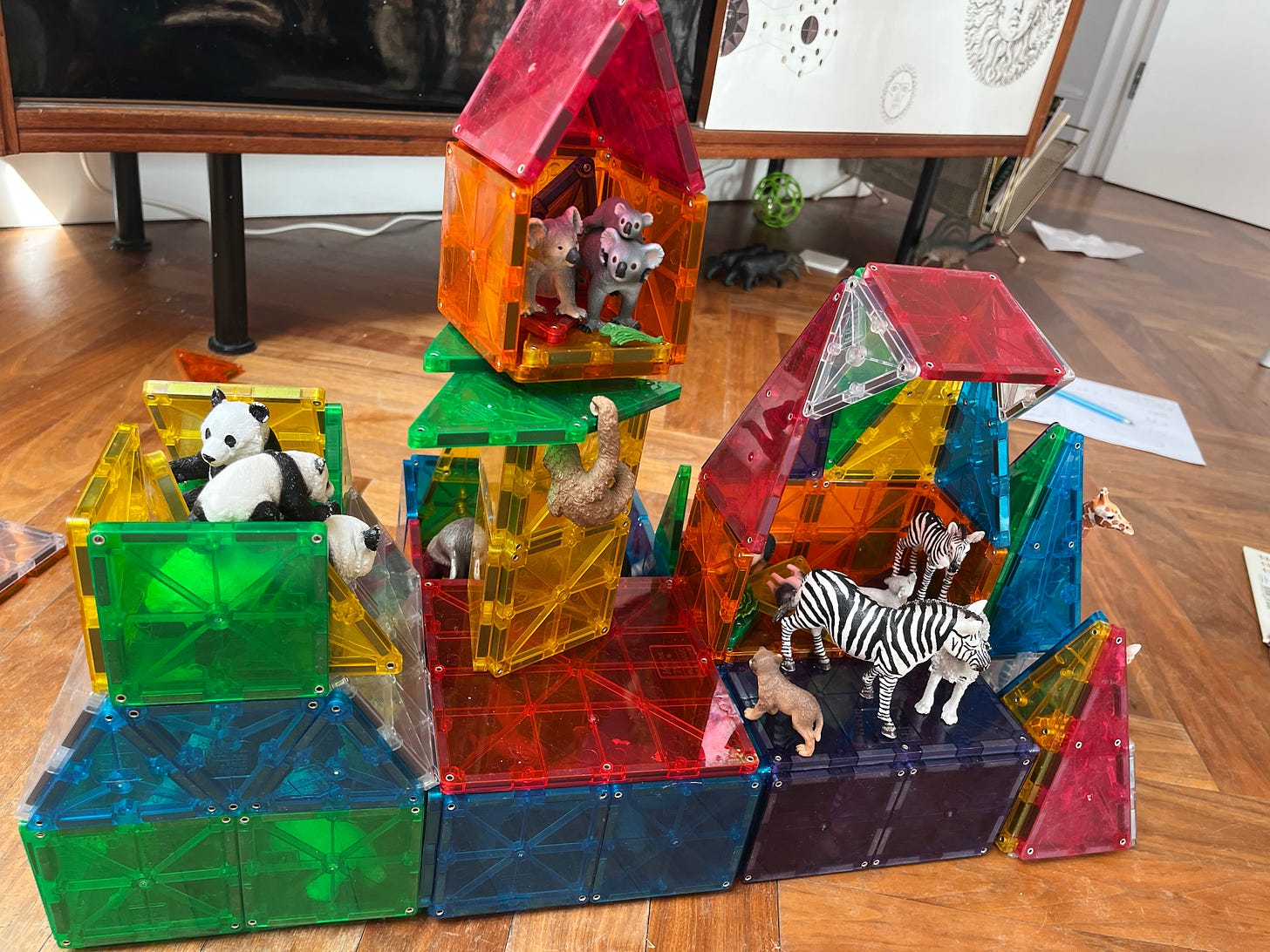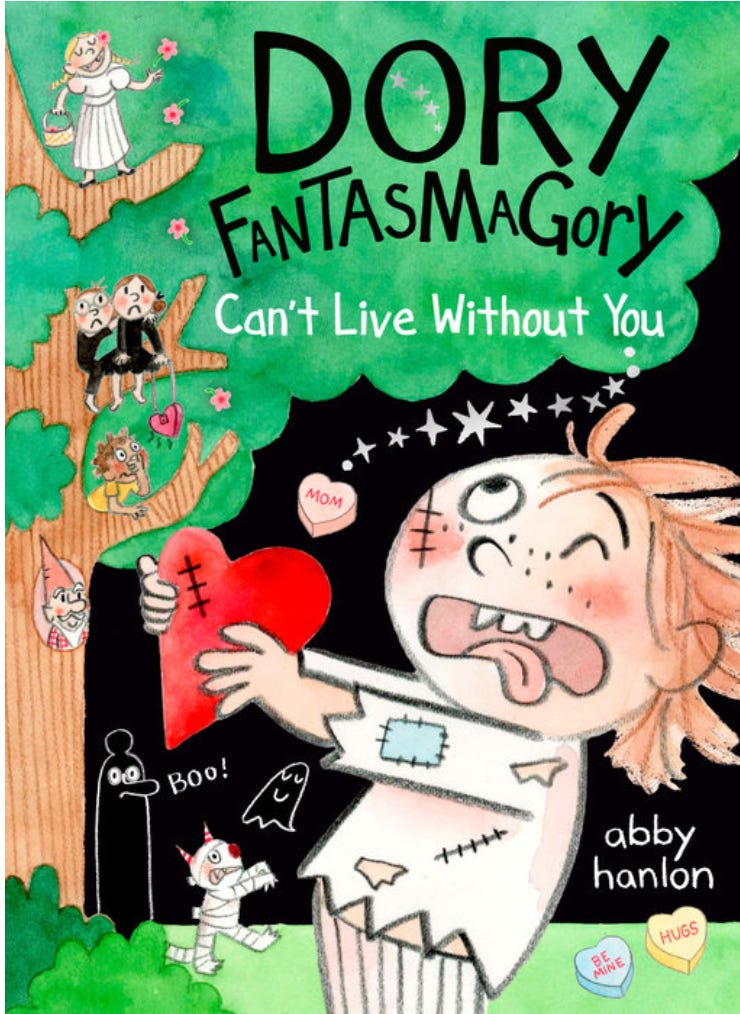Masters of the mono-task
Are kids the worst at paying attention, or the best?
I spend a lot of time trying to get my kids to pay attention - don’t, do, look, listen, stop, go…..
We went to the Hockney exhibition this week (it’s completely joyful, go if you can), and trailing through London with kids was like trying to gather wood chips with a magnet.
I find my five year old several paces back, oblivious to the swirl of commuters, pointing at things and muttering; my seven year old starting to follow another family; my one year old a wind-up toy, set her down and she’s off.
I feel irritation swell - how hard is it to remember to follow me? To lunch? With milkshakes?!
Then I look again.
My one year old is searching for stairs, laser-focussed on her next physical milestone. My seven year old is layering her understanding of relationships, watching strangers is like brain food.
And my five year old? I listen in and realise she’s counting - the paving stones, the railings, the escalator stairs, everything. A sysphiscan task (my irritation rears again) but her brain is building its story about quantity and number. Playing at the edges of mathematics as she knows it, with a focus so complete even the prospect of cookie-flavoured milk can’t reach her.
We think of kids as incapable of focus, but really they are very good at it. Adults multi-task, children mono-task. However hyper they seem, children don’t do two things at once - they dive deeply one moment, and deeply again the next. That dreamy ‘lost to the world’ expression is actually a form of effortless concentration, total immersion. And the imagination is the route there.
Pretend play builds working memory, attention and the ability to self-regulate (the ‘inhibitory control’ which is so critical to future academic focus and success). A recent study monitored over 5,000 children and found that for toddlers, every additional hour of solo playtime per day resulted in an average 5% improvement in their self-regulation skills by age 7.
More than that, the imagination is the stage on which they build their understanding about the world. It’s a curriculum they set entirely for themselves, naturally, effortlessly, and it’s all the human learning equipment they need.
Kids are masters of attention. They just don’t always attend to what we think they should.
p.s. did you know you can’t actually multi-task? Your brain switches between activity, papering over the gaps to make it seem like a constant stream, losing brain power as you go - a productivity loss of up to 40% and the brain-function equivalent of being drunk! The term multi-tasking was developed to describe computer function in the 1960s, its not for humans (and p.p.s even the computers can’t do it!).
And now some morsels of delight:
One of our hands-down most beloved book series - Dory Fantasmagory by Abby Hanlon - has a new sequel! Pre-order book no.6 or catch up here!
A new competition for young authors - pass it on to any writers aged 11 - 14!
Some dreamy sky collages from artist Alex Hyner via kottke.org
Happy weekend,
Laura x






